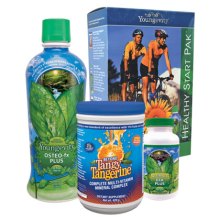This is rather interesting news. A producer suing, and I am soooo hoping she wins, for the right to talk about her raw milk production. I will keep up on this case. Wouldn’t it be great if we were actually free here? Wow. That would be something.
Raw milk producer sues Oregon Department of Agriculture over advertising ban

An Oregon farmer filed a federal lawsuit against the Department of Agriculture on Tuesday in a bid to overturn the state’s decades-old ban on the advertising of raw milk.
Christine Anderson, owner of Cast Iron Farm in McMinnville, filed the suit in U.S. District Court in Portland, asking for a judgment that declares the ban a violation of free speech rights.
Oregon law forbids retail raw milk sales but allows farmers with a limited number of animals to sell unpasteurized milk directly to customers on-site. But the law bans any advertising, including website postings, fliers and emails.
Anderson says that ban infringes on her business.
“Raw milk is legal to sell but you can’t talk about it,” she said. “I work really hard, and I do a good job as a producer. I want to be able to talk about it. I would like to go about my small farm business without a lot of fear that what I’m doing can be construed as breaking the law.”
Katy Coba, director of the Department of Agriculture, is named in the suit as the sole defendant. She declined to comment.
Bruce Pokarney, the department’s spokesman, said agriculture officials did not enact the law but are responsible for enforcing it.
But he said raw milk is not a department priority.
“We haven’t gone out and looked for anybody who’s advertising raw milk,” Pokarney said. “But if we become aware of it … we’ll respond to somebody’s complaint.”
A complaint is exactly what led to the lawsuit, Anderson said. In August 2012, an Oregon Department of Agriculture inspector visited her farm over a complaint about a raw milk price list on her website. The inspector told Anderson that constituted advertising, which is banned under the law.
Anderson took it down. She later received a cease and desist order from the department, she said, telling her to stop selling raw milk cheese. Anderson said she doesn’t make cheese so that didn’t pose a problem for her. But she said the advertising ban means that she can’t put a sign in front of her property, indicating it’s a raw milk dairy, post fliers at local health food stores or promote her business at local fairs.
She said the ban hampers sales of the milk, which she sells for $14 a gallon.
The suit is backed by the Institute for Justice, a public interest law firm headquartered in Virginia. The group also filed two other lawsuits on Tuesday, one over Florida’s ban on front yard vegetable gardens and another against Minnesota’s restrictions on small food producers, as part of a nationwide “food freedom initiative.”
Anderson is not trying to change the ban on retail raw milk sales in Oregon, enacted in 1999. Before that raw milk dairies were inspected by the Department of Agriculture. But Oregon law has long required small producers to only sell on-site while barring them from advertising, agriculture officials said.
The exemption allows small producers such as Anderson to have up to three cows, nine sheep and nine goats and sell raw milk on the farm. For decades, the law has banned small farms from advertising, agriculture officials said.
Under the law, a farmer who violates the ban is subject to a Class A misdemeanor, punishable by up to a year in jail, $6,250 in fines and civil penalties up to $10,000, the lawsuit says.
The law aim to limit access to raw milk, widely considered by health officials to be a high-risk product.
In April 2012, nearly 20 people were sickened by unpasteurized milk produced at Foundation Farm near Wilsonville. Oregon Public Health officials confirmed that the milk was contaminated with E. coli O157:H7, a potentially deadly strain. Four children were hospitalized in the outbreak, including three children who were put on kidney support.
That outbreak was the sixth in Oregon traced to raw milk since 1996, said Jonathan Modie, spokesman for the Oregon Public Health Division. No one has died.
Anderson, who tests her cow’s milk monthly for harmful bacteria, acknowledged the health risks.
“Raw milk does contain the ability to make somebody sick,” she said. “I don’t want to debate the safety of it.”


Nov 22, 2013 @ 13:18:43
Hi there all, here every person is sharing these experience, so it’s nice to read this website,
and I used to visit this web site everyday.